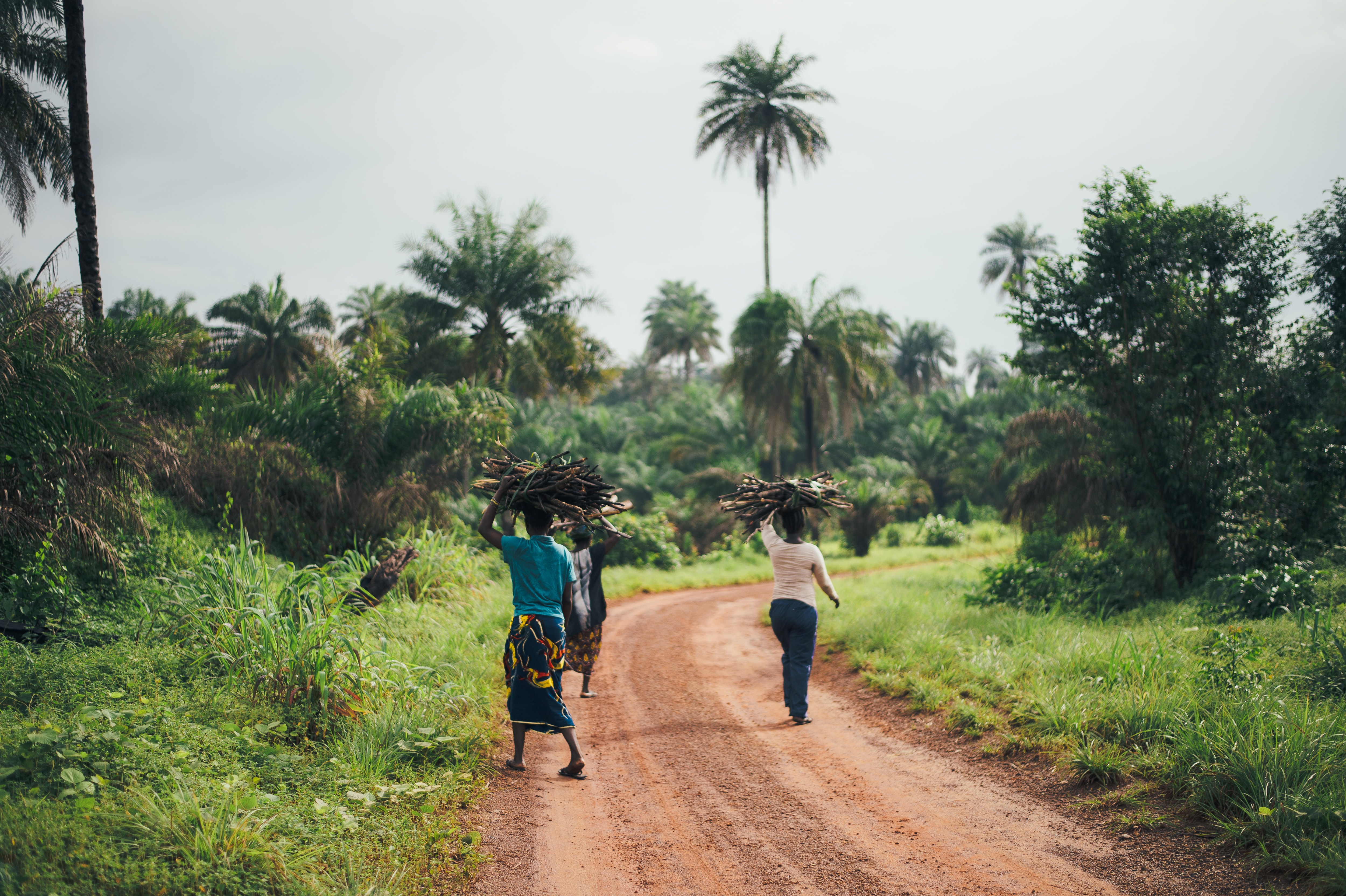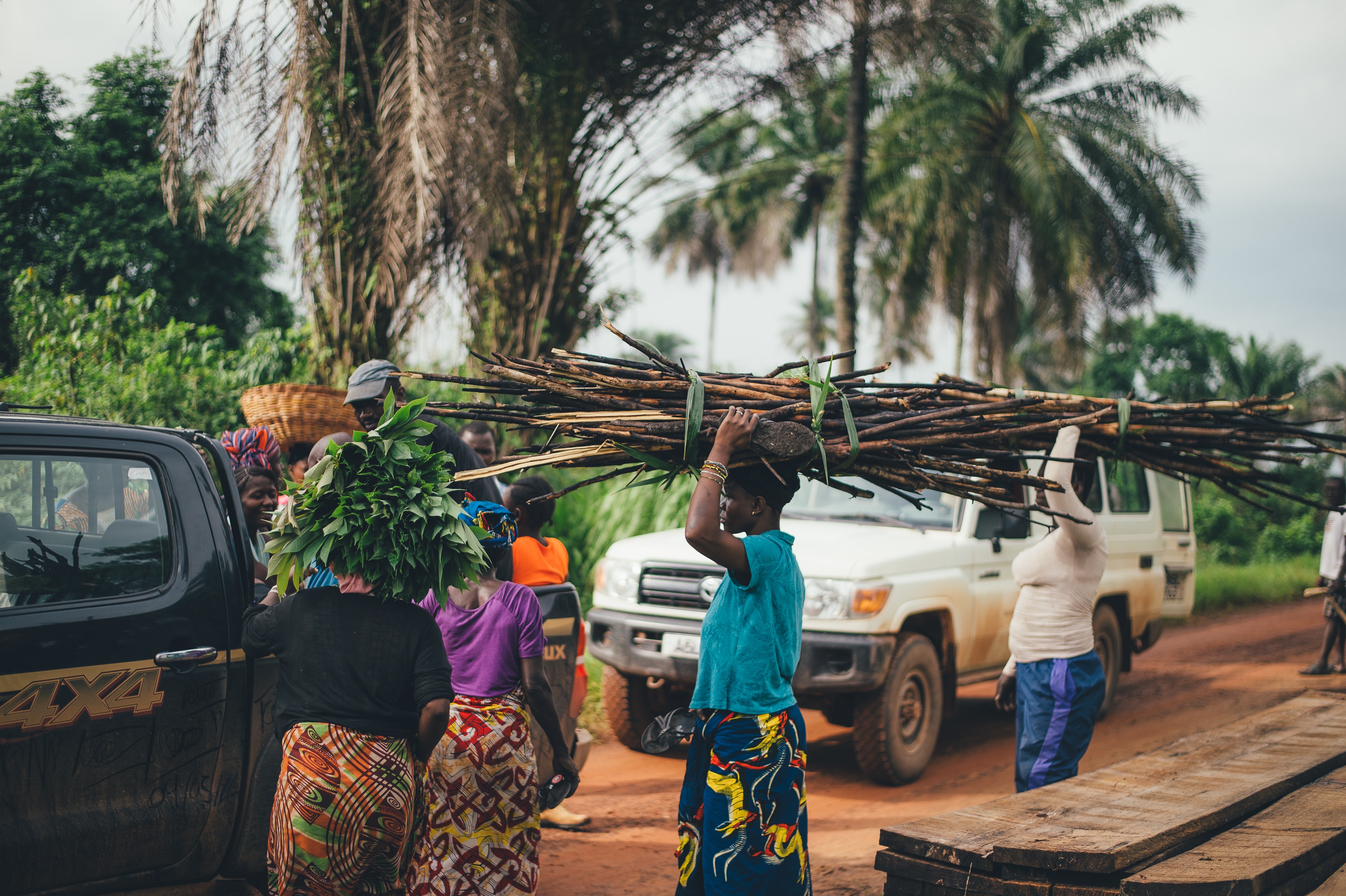Building Resilience, Inclusive Development and Gender Equity in Sierra Leone
Over the last two decades, Sierra Leone experienced a civil war, a Cholera and an Ebola epidemic and natural hazards, leading to loss of livelihoods and infrastructure and increasing social and economic challenges. Access to quality health care is a major concern, further worsened by the COVID-19 pandemic. Moreover, maternal and child mortality in Sierra Leone are among the world’s highest. Beyond health, the country also ranks low on the Gender Inequality Index. Women and girls in Sierra Leone face domestic, communal, sexual, and structural violence, which severely limits their ability to contribute to societal development. Nearly 50% of women experience intimate partner violence at least once in their lifetime, and attitudes towards gender-based violence are permissive. Female genital mutilation is widely practiced as well, with 83 percent of women aged between 15-49 having undergone the procedure according to the 2019 Demographic and Health Survey.
To address these problems, the Sierra Leone Red Cross Society, together with the Finnish Red Cross and the Icelandic Red Cross and funded by the Ministries of Foreign Affairs of Finland and Iceland, implements the BRIDGE (Building Resilience, Inclusive Development and Gender Equity) project. Following initial community needs assessments, BRIDGE includes components pertaining to community health; water, sanitation, and hygiene (WASH); disaster risks reduction; and protection, gender, and inclusion. So far, BRIDGE has reached 32,948 beneficiaries in six districts with strong Sierra Leone Red Cross Society presence, located in the Southern and Eastern regions of the country.

Aiming to increase the resilience of vulnerable communities, special emphasis is placed on their ownership of change processes. “BRIDGE facilitates the transformation of communities into cohesive, inclusive institutions pursuing a clear vision of resilience and prosperity, rooted in an enabling environment where all individuals can reach their full potential”, says Magnus Lahai, BRIDGE Project Coordinator. “Strong community voices challenge harmful practices, stereotypes and pervasive social injustices against women and girls, and champion the eradication of barriers to sexual and reproductive health access and gender-based inequalities. This change process ensures that girls and women stay safe from violence, have access to health services, and fully participate in their communities.”
BRIDGE intends to improve the health and hygiene habits of participants through awareness raising on health-related risks and rights of beneficiaries, and improve access to and utilisation of available health services with a focus on sexual, reproductive, maternal and child health; immunisation; and the prevention of communicable diseases such as COVID-19. HIV testing, family planning, and the prevention of mother-to-child transmission are also promoted in partnership with the districts’ health management teams. Beyond these activities, so-called Mothers’ Clubs were established. A Mothers’ Club is an association of volunteer women from a community who come together to exchange and sensitize other members of the community on topics they have previously been trained on such as maternal and child health, WASH or nutrition. In this context, the Mothers’ Clubs support women to access emergency obstetrics and other medical care. They also receive agricultural and material support to engage in trading and gardening, enhancing maternal and child nutrition.

The programme strives for the reduction and prevention of harmful practises to women and girls through raising awareness on the impacts of female genital mutilation and sexual and gender-based violence. BRIDGE aims to improve gender equality and inclusion in target communities through establishing and supporting local Mothers’ Clubs and Fathers’ Clubs to increase peer awareness of problems involving gender-based violence, health, livelihoods. To ensure that community members understand violence against women and girls as an infringement of their fundamental rights, a mobilisation of the entire population towards this goal is essential. BRIDGE therefore engages communities and districts through dialogue forums on violence against women and girls. To raise awareness at community level, Sierra Leone Red Cross Society volunteers distribute key messages and other informative materials on women’s rights and various legal instruments that protect them. BRIDGE also carries out advocacy on disability rights on community and district levels, ensuring equal participation of people with disabilities in its activities.
In the long run, the impact of BRIDGE is determined by its longevity following its lifespan. This is achieved by involving communities in the planning, implementation, review, monitoring and evaluation of the programme, with emphasis on capacity building for volunteers, health workers and WASH committees. In addition, advocacy is carried out vis-à-vis local governments to broaden the provision of these services across districts not currently covered by the programme, in alignment with the Government of Sierra Leone health sector reform strategy and local approaches towards maternal and child health surveillance.
Basic information
Activity name
Building Resilience, Inclusive Development and Gender Equity (BRIDGE)
Country
Sierra Leone
Duration
January 2020 – December 2024
Partners
Sierra Leone Red Cross Society, Finnish Red Cross, Icelandic Red Cross

